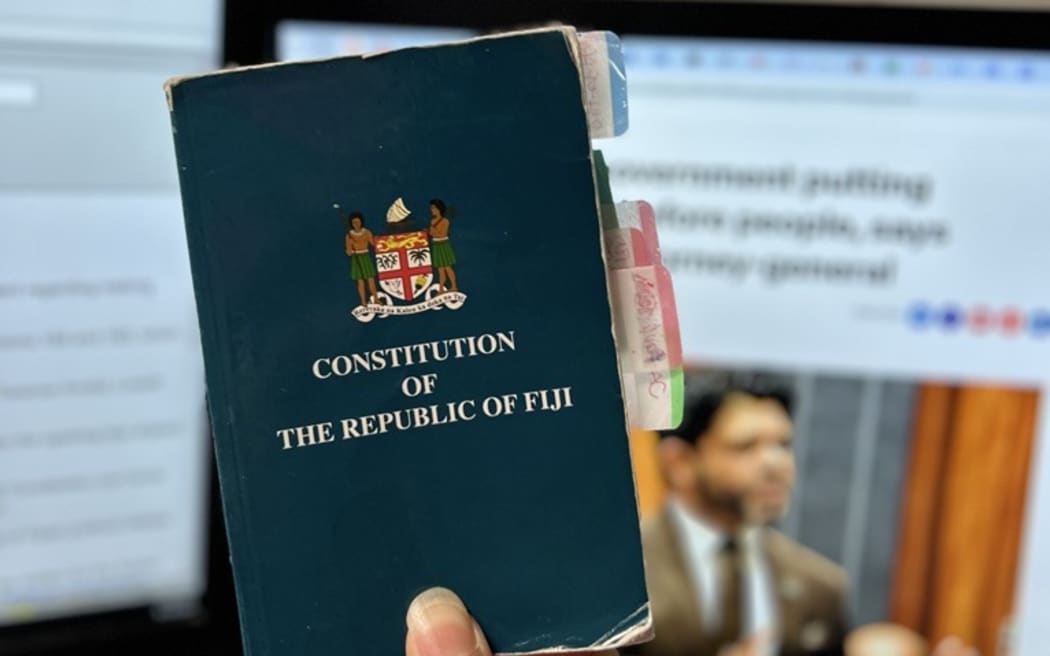World
Fiji Supreme Court Lowers Constitutional Amendment Requirements

Fiji’s Supreme Court has determined that the requirements for amending the country’s 2013 Constitution should be reduced. The ruling, issued on October 20, 2023, specifies that amendments can now be made with a two-thirds majority of members of parliament and a simple majority of voters in a referendum. This decision came after a week-long hearing requested by the coalition government, aiming to clarify the process for constitutional changes.
The current stipulations necessitate a challenging 75 percent approval from both parliament and registered voters, a threshold the court deemed excessively high. The court remarked that these provisions made the Constitution “virtually unamendable,” effectively disempowering citizens from enacting democratic changes.
The opinion highlighted the need to strike a balance between allowing amendments and preventing unilateral changes that could benefit specific interest groups. “In so doing, we do not accept the contention of the State that the Constitution can be amended merely by a simple majority of the Parliament,” the court stated.
Immunity Clause Remains Intact
In a significant aspect of the ruling, the court confirmed that the immunity provision for individuals involved in the 1987 and 2000 coups will remain unchanged. This clause ensures that those behind these actions will not face prosecution, a decision made to maintain “stability and continuity” within Fiji’s political landscape.
Following the ruling, Prime Minister Sitiveni Rabuka welcomed the Supreme Court’s guidance. He emphasized the coalition government’s commitment to the rule of law and stated that the opinion would be presented to the cabinet for further discussion. “This opinion provides clarity on matters of constitutional law and governance,” Rabuka noted.
Arguments from Various Legal Perspectives
During the hearings, differing views emerged regarding the validity of the 2013 Constitution. Representing the Fiji Law Society, Arthur Moses SC challenged the state’s push for constitutional amendments. He argued that the state had not clearly articulated the reasons for altering the foundational document. “The 2013 Constitution was designed to enable change, and although that might be difficult, it was not impossible,” he asserted.
On the opposite side, Simione Valenitabua, representing the ruling People’s Alliance Party (PAP), contended that the 2013 Constitution is illegitimate and should not be the basis for governance. He argued that the 1997 Constitution was established through unanimous parliamentary approval and public consultation, making it a more valid legal framework.
The Fiji Labour Party’s barrister, Jagath Karunaratne, raised concerns that simplifying the amendment process could jeopardize fundamental rights. He warned, “If this court lowers the bar and allows the state to pass a simple bill in parliament to amend the Constitution, the government will be able to trample on those rights.” His statement highlighted fears that the majority could override essential protections for minority groups.
As Fiji navigates these constitutional challenges, the implications of the Supreme Court’s ruling will be closely monitored. The decision is poised to reshape the landscape of governance and democratic engagement in the nation.
-

 World4 months ago
World4 months agoTest Your Knowledge: Take the Herald’s Afternoon Quiz Today
-

 Sports4 months ago
Sports4 months agoPM Faces Backlash from Fans During Netball Trophy Ceremony
-

 Lifestyle4 months ago
Lifestyle4 months agoDunedin Designers Win Top Award at Hokonui Fashion Event
-

 Entertainment5 months ago
Entertainment5 months agoExperience the Excitement of ‘Chief of War’ in Oʻahu
-

 Sports4 months ago
Sports4 months agoLiam Lawson Launches New Era for Racing Bulls with Strong Start
-

 World5 months ago
World5 months agoCoalition Forms to Preserve Māori Wards in Hawke’s Bay
-

 Health4 months ago
Health4 months agoWalking Faster Offers Major Health Benefits for Older Adults
-

 Lifestyle4 months ago
Lifestyle4 months agoDisney Fan Reveals Dress Code Tips for Park Visitors
-

 Politics4 months ago
Politics4 months agoScots Rally with Humor and Music to Protest Trump’s Visit
-

 Top Stories5 months ago
Top Stories5 months agoUK and India Finalize Trade Deal to Boost Economic Ties
-

 Health2 months ago
Health2 months agoRadio Host Jay-Jay Feeney’s Partner Secures Visa to Stay in NZ
-

 World5 months ago
World5 months agoHuntly Begins Water Pipe Flushing to Resolve Brown Water Issue









